Stay in the know on all smart updates of your favorite topics.
MozFest: wereldwijd online festival over open, menselijk en gezond internet

Ruim 5.000 deelnemers uit meer dan 80 landen nemen vanaf 8 maart deel aan Mozilla Festival, een van de grootste internationale bijeenkomsten van voorvechters van een humaan internet. MozFest komt voor drie jaar naar Amsterdam en is dit jaar volledig online.
Het festival is uniek doordat het door de deelnemers zelf wordt samengesteld. Duizenden technologen, activisten, ondernemers, academici en kunstenaars brengen in meer dan 400 sessies de meest urgente internet problemen in kaart en werken samen aan oplossingen.
Betrouwbare Kunstmatige Intelligentie
Algoritmische vooroordelen, online desinformatie en tal van andere internet vraagstukken; tijdens de 11e editie van dit jaarlijkse evenement ligt de focus op Kunstmatige Intelligentie (AI) in ons dagelijks leven. Bob Alotta, VP Global Programmes van Mozilla, zegt daarover:
“Het afgelopen jaar heeft een pandemie de wereld overspoeld. Mensen zijn massaal in opstand gekomen tegen systemisch raciaal onrecht en de klimaatcrisis wordt elke dag urgenter.”
“Betrouwbare AI speelt een belangrijke rol in deze crises. Het systeem achter de online platforms kan ons dichter bij elkaar brengen tijdens de pandemie, maar het kan ons ook verkeerd informeren en polariseren. Kunstmatige Intelligentie kan positief worden gebruikt in de strijd voor raciale gerechtigheid, maar gezichtsherkenning en discriminerende algoritmen kunnen ook grote schade toebrengen aan groepen mensen. En AI kan ons helpen klimaatverandering te begrijpen en te bestrijden, maar het kan ook enorme hoeveelheden energie verbruiken en veel CO2 produceren.”
“Het tegengif voor deze crises is niet eenvoudig. Maar de oplossingen kunnen wel eenvoudig beginnen: met mensen en bewegingen. Mensen en bewegingen die zich inzetten voor internet gezondheid, raciale gerechtigheid en milieurechtvaardigheid. Mensen en bewegingen die deze problemen overbruggen, begrijpen hoe ze elkaar beïnvloeden en er samen voor vechten. Dat is waar MozFest voor staat."
Digitale Stad Amsterdam
Amsterdam zet zich in voor een vrije, inclusieve, digitale stad. Wethouder Touria Meliani is dan ook heel blij met de komst van MozFest: “Drie jaar geleden is de agenda voor Digitale Stad Amsterdam in het leven geroepen. Hiermee richten we ons op de digitale rechten van burgers, privacy en transparantie. We geloven dat een gezond internet bijdraagt aan een leefbare stad. MozFest past daar uitstekend bij.” Tijdens het festival gaat Meliani in gesprek met Waag-oprichtster Marleen Stikker over de digitale toekomst van Amsterdam.
Programmering
De lokale Amsterdamse activiteiten zijn onderdeel van het uitgebreide internationale programma vol workshops, films, lezingen, rondetafelgesprekken, kinderprogramma’s, hackathons, tentoonstellingen en sociale evenementen. MozFest duurt twee weken; van 8 t/m 19 maart. De kaartverkoop gaat op basis van een donatie; je betaalt wat je kunt. Alle informatie over het programma en tickets is te vinden op mozillafestival.org.
Citizen Voices of Digital Rights - Publieke Dialoog over digitale rechten met wethouder Touria Meliani

Iedereen deelt data. Door te bellen, je foto’s op sociale media te zetten, en zelfs door te fietsen in onze mooie stad… Maar van wie zijn die data eigenlijk? Van de mensen achter de apps die we gebruiken? Of zijn die data van jou? Amsterdam wil zich inzetten voor betere digitale rechten, samen met activisten, maatschappelijke organisaties en betrokken Amsterdammers. Doe je mee?
Op 12 maart organiseren we een Amsterdamse bijeenkomst over digitale rechten. In deze bijeenkomst gaan we in gesprek met wethouder Meliani over de digitale agenda van Amsterdam, leer je van alles over algoritmes in de stad, speel je monopoly met je data en vormen we vooral een gezamenlijke visie over hoe we digitale rechten beter zouden moeten organiseren.
Vervolgens trekken we op 19 maart graag ook samen met een aantal van jullie op naar Brussel, samen met andere steden in Europa die, net als Amsterdam, actief werken aan digitale burgerrechten. Als je hier interesse in hebt, vermeld dit dan bij je aanmelding.
NYC Open Data Week 2021

Open Data Week is a week-long festival of community-driven events organized and produced by the NYC Mayor’s Office of Data Analytics and BetaNYC. Every year, New Yorkers come together all across the boroughs to celebrate New York City’s Open Data Law, which was signed into law on March 7, 2012. Coincidentally, the first weekend of March is also International Open Data Day. Together, these events anchor NYC’s Open Data Week and increase civic engagement with municipal open data.
This year, from March 6 - 14, over 75 event organizers are hosting virtual sessions to engage with you about open data, technology and design. Check out the program and RSVP to participate in events all throughout the week: https://2021.open-data.nyc/#calendar
“Rolling out technology without citizen participation does not work”
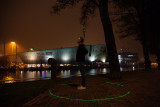
One of our 8000 community members is Tom van Arman. Tom is founder and director of Tapp, an agency that develops responsible urban technologies. Tom is full of ideas about the digital city. 'And citizens must be much more involved in the implementation of technology in the public space', he says.
He uses the data principles of the Tada Manifesto, inclusivity, tailored to people, control, legitimacy, transparancy and for people, in his work.
In this interview Tom explains how entrepreneurs could learn more from each other about developing ethical technology and how Tada can act as a library for the exchange of knowledge.
Check out the interview (in Dutch):
Amsterdam Smart City Demoday Digital City x Energy
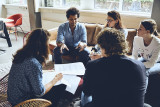
The Amsterdam Smart City team hosts demodays every 8-10 weeks. Demodays are part of our innovation process and intended to boost the progress of the various innovation projects, put requests for help on the table, share dilemmas and involve others in projects or challenges.
Our partners put out concrete questions about projects they are currently working on. We set up pitches and organize workshops with them and other partners to get them to get a step further.
This time on the agenda:
- Innovative optical fiber connections
- Pilot on warmbuilding, a new isolation method
- Transparancy about sensing in the city
Time: 14.00 - 16.30h
This event is in Dutch and invitation only, however we are happy to be joined by others! Do you feel like you should be there? Do you have knowledge or a network that could be useful for the session? Or do you want to learn more about one of the topics discussed? Please send an e-mail to info@amsterdamsmartcity.com and we might save you a seat!
Metropolitan Mobility Podcast met Maurits van Hövell: van walkietalkies naar het Operationeel Mobiliteitscentrum

“Voorheen werd er gewoon rondgebeld: ‘Wij zitten in de instroom van de ArenA. We hebben nu 20.000 man binnen. Hoe gaat het bij jullie op straat?’” In de achtste aflevering van de serie A Radical Redesign for Amsterdam, spreken Carin ten Hage en Geert Kloppenburg met Maurits van Hövell (Johan Cruijff ArenA). Hoe houdt je een wijk met de drie grootste evenementenlocaties van het land, bereikbaar en veilig? Ze spreken elkaar in het Operationeel Mobiliteitscentrum over de rol van de stad Amsterdam, data delen en het houden van regie. A Radical Redesign for Amsterdam wordt gemaakt in opdracht van de Gemeente Amsterdam.
Luister de podcast hier: http://bit.ly/mvhovell
Digitalisering in de stadslogistiek - GDZES in de MRA Meet-up#6

Op dinsdag 23 maart organiseren we de Green Deal ZES MRA Meetup #6 en zetten we samen vervolgstappen op weg naar slimme en schone stadslogistiek in de regio in 2025. Deze keer staat digitalisering in de stadslogistiek centraal. Of je nu actief bent als verlader, logistiek dienstverlener, voertuigproducent, ontwikkelaar van logistieke concepten, onderzoeker of beleidsambtenaar; om digitalisering van de stadslogistiek kunnen we niet langer heen!
Het belooft een interessant programma te worden waarin we opnieuw kennis en ervaring kunnen delen, we van elkaar kunnen leren en we je een netwerk bieden om nieuwe coalities te smeden.
Vraagstukken die in elk geval aan de orde komen, zijn:
- Hoe kunnen we door digitalisering in de stadslogistiek de doorstroming van voertuigen optimaliseren?
- Hoe kunnen we de stadslogistiek slim en duurzaam inrichten door vracht(data) onderling uit te wisselen?
Deze vraagstukken en mogelijke oplossingsrichtingen zullen worden ingeleid door Walther Ploos van Amstel, lector City Logistics aan de HvA.
Call for Cities to test the Responsible Sensing Toolkit

As societal values change and the deployment of sensing technology becomes more ubiquitous, what are our digital rights in a 21st-century city? This dilemma is forcing municipalities to make difficult decisions about practice versus the policy of collecting data from public space. In collaboration with the City of Amsterdam, The City Innovation Exchange Lab (CITIXL) has created the Responsible Sensing Toolkit - a six-step process to help navigate this new landscape in a fast and effective way. The toolkit was co-designed by experienced city innovators to empower municipalities, organisations, and communities to implement open and inclusive sensing solutions for our 21st-century cities.
We are currently seeking cities to test the step-by-step process to guide the design and implementation of crowd sensing pilots in public spaces. For complete details about the Toolkit and how your city can participate please visit http://www.citixl.com/responsible_sensing_toolkit/ or contact CITIXL co-founder Paul Manwaring at paul@citixl.com
Open the Blackbox: Do you have a story for us?

Open the Blackbox is een oproep van een brede alliantie van Nederlanders
voor meer democratische grip op de machtige technologieën en
organisaties in onze samenleving. Zie hier de visie video zoals gepresenteerd op Smart Humanity 2020.
We zijn op zoek naar verhalen over technologie en organisaties die je zelf hebt meegemaakt. Kleine of grote gebeurtenissen die jouw blik op dit onderwerp hebben veranderd, en waardoor je misschien ook iets nieuws
over jezelf hebt ontdekt. We zoeken dus niet naar verhalen over iemand anders, of geruchten die je via via hebt gehoord. In deze fase van Open the Blackbox gaat het om persoonlijke ervaringen, om feiten en voorvallen die indruk hebben gemaakt op jou.
Heb jij een verhaal voor ons? Heb je een goede tip en liefst zelfs documentatie om het te onderbouwen? Mail ons dan via opentheblackbox@protonmail.com (ook versleutelde berichten). We nemen zo snel mogelijk contact met je op.
Zou je ons willen helpen? Ga dan voor jezelf na of je iets hebt meegemaakt op de volgende gebieden:
- Gebruik van informatie door overheid
- Functioneren van tech bedrijven en geheime diensten
- Dienstverlening en besluitvorming van grote organisaties
- Functioneren van autonome systemen en voertuigen
- Werking van Artificial Intelligence
- Veiligheid van gevoelige persoonlijke informatie
- Fraude, belastingontwijking en oneerlijke concurrentie
Open the Blackbox is een initiatief van Frank van Geffen en Joost van de Loo, en wordt gesponsord door KNVI Beroepsvereniging.
Deelnemers aan de pilot video zijn Martijn van der Veen (Privacy First), Hajo Reijers (Utrecht University en Eindhoven University of Technology), Nancy Zikken (Amsterdam Smart City), Frank van Geffen (KNVI), en Rein Mertens (SAS Nederland).
Smart Health Amsterdam is looking for an intern Communication & Events
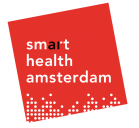
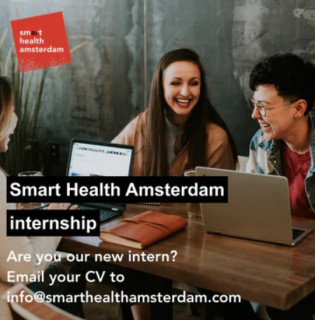
Looking for an internship where you can develop new skills in communications, marketing, PR and event management? Do you have an interest in how AI & data science can contribute to a healthier society and better medical care? Want to work as part of a fun and inspiring team?
As Amsterdam’s key network for data- and AI-driven innovation Smart Health Amsterdam (Gemeente Amsterdam & Amsterdam Economic Board) in #the #life #sciences and #health sector, we’re looking for an intern. Interested? Get in touch today.
https://smarthealthamsterdam.com/p/jobs-at--smart--health--amsterdam Smart
Sixty Minutes Back to the Future: Imagination and Urban Technology, Shaping the Smart City

Technology is everywhere: glued to other hands, integrated into our cars, or hidden behind garbage bins in your street. These technologies change the way we are in the world and experience it. For example, an urban walk is very different if you are efficiently using Google Maps to go from A to B, than if you are quietly strolling in the sunset. When was the last time that you got lost in the city or established a random conversation with a stranger while asking for directions? The introduction of technology in our cities disrupts how our society operates, calling for reflection and debate about the values that we hold important.
Building on insights from post-phenomenology, we reflect on the intricate nature of human-technology relations in the city, broadening it to a society-technology relation. Then, we reflect on how to turn these insights into practice. What do we need to not only reflect on and analyze past or current practices, but to foster our imagination and collective sense-making to take action towards inclusive and responsible practices? What role can design and futuring play in this?
In this lecture, Anouk Geenen and Julieta Matos-Castaño will employ an interdisciplinary approach to reflect on different theories and scholars that help us to create more responsible practices in our technological cities. Moving from Philosophy of Technology to Design Research, and bridging insights on issues and imagination, we follow a broad path of thinkers that broaden our horizon.
Communication & events Internship at Smart Health Amsterdam
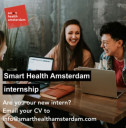
Looking for an internship where you can develop new skills in communications, marketing, PR and event management? Do you have an interest in how AI & data science can contribute to a healthier society and better medical care? Want to work as part of a fun and inspiring team?
As Amsterdam’s key network for data- and AI-driven innovation Smart Health Amsterdam (Gemeente Amsterdam & Amsterdam Economic Board) in #the #life #sciences and #health sector, we’re looking for an intern. Interested? Get in touch today.
Inkopen met Impact - hoe start je daarmee?

Met elke euro die je als organisatie uitgeeft aan producten en diensten, heb je de keuze voor het duurzamer, eerlijker of innovatiever alternatief. Denk aan circulaire en energiebesparende producten en diensten, maar ook aan verantwoorde inzet van technologie. Daarmee is inkopen een belangrijke driver voor een slimme, groene en gezonde toekomst. Budgetten worden anders ingezet en systemen en gewoontes worden zo doorbroken.
De Amsterdam Economic Board heeft inmiddels een heel Insights dossier gericht op Inkopen met Impact. Daarin vind je achtergrondartikelen, maar ook quickstarts die je op weg helpen bij het verantwoorder inkopen van bijvoorbeeld bedrijfscatering, werkkleding of bouw en onderhoud van je organisatie. Je vindt al deze quickstarts in het dossier Inkopen met Impact. Je vindt er ook links naar hoe je je kunt aansluiten bij activiteiten van de Board die je helpen met beter inkopen.
De staat van het internet 2021: Inclusieve AI
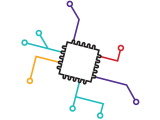
Elk jaar steken we de peilstok in het internet. Dit jaar onderzoeken we algoritmisch onrecht en andere potentiële gevaren van slimme en zelflerende systemen. Wie zitten er aan de knoppen? Wie ontwerpt de knoppen? En hoe zorgen we dat de veelgebruikte systemen voor iedereen even goed werken?
Hoofdspreker van De staat van het internet 2021 is Sennay Ghebreab, neuro-informaticus en professor aan de Universiteit van Amsterdam. 'Discriminerende algoritmes versterken de groeiende ongelijkheid in de samenleving,' waarschuwde hij eerder in een interview met OneWorld.
'Discriminerende algoritmes versterken de groeiende ongelijkheid in de samenleving.'
Het evenement vindt online plaats op vrijdag 29 januari om 16:00, is Nederlandstalig en gratis toegankelijk.
AI is niet neutraal
We weten het al langer: technologie is niet neutraal. Het is een vertaling van cultuur, wereldbeeld en politieke overtuiging. Vooroordelen, ongelijkheden en racisme zitten in technologie ingebakken. Het is de vraag welke ethische waarden als uitgangspunt worden gebruikt in de ontwerpen. Op verschillende niveaus kunnen er aannames in de systemen verwerkt worden, die daarna veelal niet goed traceerbaar zijn. Dus ook fouten, of bevooroordeelde aannames worden zo op grote schaal herhaald en bevestigd.
Het is vaak ondoorzichtig wat er precies ‘onder de motorkap’ van zelflerende technologie gebeurt, laat staan wie er verantwoordelijkheid draagt. Daarom is het evidenter en urgenter dan ooit om kritische vragen te blijven stellen bij het ontwikkelen en beoordelen van zelflerende technologie.
Tijdens deze editie van De staat van het internet gaan we in gesprek met een aantal experts over (on)verantwoorde algoritmes. Wat zijn de gevolgen voor de mensen waartegen AI bevooroordeeld (biased) is, wat is een wenselijk toekomstperspectief, en welke acties zijn er nodig?
Het programma bestaat uit een keynote van Sennay Ghebreab en een discussie met panelleden uit de politiek, wetenschappelijk onderzoek en wetgeving.
In aanloop naar de Staat van het Internet 2021 kun je nu alvast de documentaire Coded Bias bekijken.
Over De staat van het internet
Op 15 januari 2019 trapten we af met de eerste editie van De Staat van het Internet. Sindsdien staan we jaarlijks stil bij het moment waarop voor Amsterdam het internet als publiek domein toegankelijk werd. Op 15 januari 2021 is het inmiddels 27 jaar geleden dat de Digitale Stad haar deuren opende en het internet publiek toegankelijk werd. Tijdens de eerste editie in 2019 verzorgde hoogleraar media en digitale samenleving (Universiteit Utrecht) José van Dijck de lezing, waarin ze inzoomde op de rol van platforms in onze publieke ruimte. Vorig jaar ging Jaap-Henk Hoepman, expert op het gebied van privacy by design, in op onze digitale identiteit.
Kijk hier de lezingen terug van 2019 en 2020.
De Staat van het internet wordt mede mogelijk gemaakt door SIDN en de Universiteit van Amsterdam. Via het SIDN fonds steunt SIDN veel projecten die AI op een verantwoorde manier inzetten. Zie hier een overzicht.
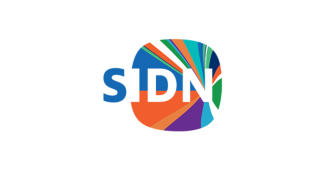
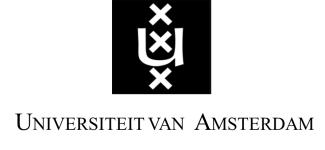
Branchevereniging ICT en Telecommunicatie Grootgebruikers (BTG) is partner van Amsterdam Smart City
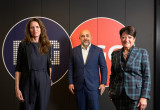
Branchevereniging ICT en Telecommunicatie Grootgebruikers (BTG) sluit zich als Associate Partner aan bij Amsterdam Smart City. Dit betekent dat we onze netwerken aan elkaar verbinden, relevante verbindingen leggen en gezamenlijke events organiseren. BTG is ook lid geworden van de Network Council van de Amsterdam Economic Board.
“Bij het netwerk van Amsterdam Smart City gaat het om het maatschappelijk waardevol inzetten van technologie. Publieke waarde creëren, en technologie inzetten vanuit een menselijk perspectief. Met BTG delen we deze doelstelling en hebben we een gedeeld, maar zeker ook aanvullend netwerk. Hiermee kunnen we elkaar versterken en samen nog meer waarde aan onze maatschappij toevoegen”, aldus Leonie van den Beuken, programma directeur Amsterdam Smart City.
“De digitalisering verandert onze wereld razendsnel; met COVID-19 en de uitrol van 5G als recente aanjagers. BTG zet vol in op deze digitale versnelling samen met haar Solution Partners en Leden. Op deze wijze wordt de leefbaarheid in steden en regio’s verhoogd. Nieuwe innovaties in het smart domein staan hoog op de agenda bij BTG door de inzet van de diverse Expertgroepen op het vlak van IoT, 5G, AI, Security, Smart Society etc. De verkregen best practices worden door BTG ingezet bij het Amsterdam Smart City netwerk. Co-creatie en complementaire
werking, pur sang,” aldus Petra Claessen, CEO BTG/TGG.
Het partnership heeft al geleid tot het gezamenlijk organiseren van twee events in november vorig jaar. Onder de noemer ‘De mindset voor een menselijke slimme stad’ en ‘Hoe kan 5G bijdragen aan verduurzaming van steden?’ hebben we twee bijeenkomsten georganiseerd waarin we met belangrijke stakeholders in gesprek zijn gegaan over de vragen 'Hoe creëren we duurzame en leefbare steden?' 'Hoe kan technologie hierin een nuttig middel zijn?' 'Hoe zetten we mensen centraal in deze steden en nemen we hun waarden mee in de ontwikkeling?'
Bekijk hier de Highlights van beide events.
Belijk hier een verslag van ‘De mindset voor een menselijke slimme stad’
Metropolitan Mobility Podcast: De stad slimmer en schoner van goederen voorzien?
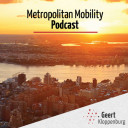
In deze podcast gaat Geert Kloppenburg in gesprek met Walther Ploos van Amstel en Carin ten Hage over digitale voorwaarden voor gezonde stadslogistiek. Luister hier de podcast: http://bit.ly/38ASVZ
Latest developments in the Amsterdam Smart City program
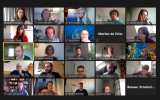
Last December, the 20 partners of Amsterdam Smart City came together to present the progress of innovation projects, ask for input, share dilemmas and involve other partners in their initiatives.
Following the thought that nobody wants to live in a smart city but in a nice, friendly, cosy city we work on challenges in which people play a central role. These gatherings are called Demo days and occur every 8-10 weeks. Get a quick overview of the topics and projects about to happen in the Amsterdam Metropolitan Area and let us know if you want to be involved!
ELSA Lab: AI, Media & Democracy
Pascal Wiggers, senior lecturer Responsible Artificial Intelligence at Amsterdam University of Applied Sciences, is working on an Ethical Legal Societal Aspects Lab to investigate and shape the impact of AI on our society. The University of Applied Sciences is doing this in co-creation together with residents, companies, knowledge institutions and governments. Partners want to understand how AI-driven applications in the media and public space
influence democracy. They also want to experiment with new applications of AI in the media and in the democratic process and draft new ethical and legal guidelines. Pascal is looking for parties that want to join the consortium. Various Amsterdam Smart City partners are interested to join. You too?
Object Detection Kit
Keeping the city streets clean is a major challenge. Maarten Sukel from the City of Amsterdam developed an image recognition system that shows streets in real time maps. For example, garbage bags and other unwanted objects in
the street scene are recognized. The system is based on machine learning and ultimately, we can clean Amsterdam more efficiently and sustainably. The system is continuously improved and tested. In the future it might be used for the recognition of water puddles in the streets, track missing pets, link with a module that shows the value of objects on the streets and more.
Seenons
Seenons believes in a future with 0% residual waste as a standard. Seenons makes it easy to separate waste and then pick it up separately and sustainably. Citizens and companies offer their separate flows via an app, the Seenons platform proposes the optimal route with the best transport options and delivers the residual flows to processors who make new products of them. Seenons also prevents contamination of flows through clear separation and fine-meshed collection. Environmental friendly transport is used, such as cargo bikes.
Mapping of material flows
Maintaining the value of the raw materials was a central topic at this Demoday. Martijn Kamps from Metabolic started with a presentation about recycling of materials. Based on cases in Rotterdam and Philadelphia he showed that there is a lot of construction and demolition waste that is still dumped or burned. This is issue is still not solved because there is too little data available about these materials. According to Metabolic, urban mining can help. A lot information about volumes of waste is available, but there is no business case yet. You can see where flows come from, identify them, decide where you store materials in the meantime and then, where you want to reuse them. The PUMA project was one of the first projects in this field and current projects are all a sequel to PUMA.
Arnout Sabbe from Geofluxus continued. Geofluxus is a startup which originates from REPAIR, a project with Metabolic and AMS Institute, among others. Geofluxus is working on a reclassification model for raw materials. Currently, there are many databases in which raw materials are registered. Geofluxus brings these together as a combination of data sources from industrial waste. In the Geofluxus monitor you can see how p.e. wood from the Amsterdam Metropolitan Area eventually spreads all over the world. It shows the impact on the road network and CO2 emissions for certain waste streams elsewhere. Geofluxus is developing this monitor for the City of Amsterdam and expects to have it ready by the end of next year, although the municipality is dependent on the availability of data. New partnerships are therefore necessary. But a first success is already visible: through the monitor is clear that 70% of the waste in the Amsterdam Metropolitan Area is caused is used by only 7% of companies. A result worth continuing this work and something to hold on to!
Collaboration between governments and innovative companies
In order to innovate we have to work together; governments and innovative companies. That is not always easy. Various organizational cultures and interests collide. Everyone is in their own system and has its own pace. We had an open and honest discussion on this based on two cases. One of the companies started with some positive feedback: the region is at the forefront of circularity, there is a lot of attention and ambition. But collaborating is different. The company experiences a lot of reluctance, especially from governments. There is little willingness to take
responsibility and work outside existing frameworks. In addition, there is an enormous fragmentation of tasks and a fear of explicitly saying yes or no. For the other company this story is recognizable. They experience a lot of enthusiasm about their company, but still it takes a huge amount of time to involve different departments and decision making is very slow. They noted it is time to get out of the pilot sphere and important to mention business models early on.
There was a lot of understanding and recognition from the government side. They recognized the stories about the silos and indicated that it takes a lot of people and time to make decisions. Governments are less likely to think outside the box and both parties must invest in building trust. The advice that came out for both parties: embrace complexity, be persistent, be open to each other, be clear about expectations, go where the energy flows. And as a positive conclusion: once collaboration is there, governments are nice, loyal and reliable partners.
CleanMobileEnergy (CME)
Cenex The Netherlands is in the middle of the development of an intelligent Energy Management System (iEMS), based on three urban pilots in Nottingham (UK), Arnhem (NL) and Schwabisch Gmund (DE). The goal is to develop a transnational and generic iEMS. In these cities, the pilot elements are currently being put out to tender and connected to the iEMS. Cenex would like to know which mobility and energy initiatives could be suitable for integrating in this iEMS.
Sharing Energy in Almere Haven
The City of Almere joined Amsterdam Smart City as a partner and has many great initiatives to share with the network. In 2020 Almere started EARN-E to reduce the use of electricity and gas in people's homes. Next year, Wijkie will be launched: this combines the energy transition with social needs in a neighbourhood. The core is the sharing of energy with your neighbours in your neighbourhood. In order to set up Wijkie successfully, it is important to enter into dialogue with residents.
The Energy Transition Explained
The energy transition is "hot". Much has been reported in the media, but the reporting is not always easy to understand and sometimes even confusing. Knowledge is needed to critically follow the news about the energy transition. That is why Sanne de Boer wrote the book ‘De energietransitie uitgelegd’. The book provides all the basic knowledge needed to follow news and form informed opinions in discussions. Sanne is looking for suggestions for where to market her book to be able to transfer this knowledge.
Curtailment for solar panels
As an energy platform, Vandebron is an innovative player in the field of sustainable energy. They took us along in the story of solar panel curtailment: remotely on and off switching of energy. A well-known phenomenon in the energy world is that the electricity demand is reasonably stable, but due to the volatility of renewable energy there are significant peaks in the electricity supply every year. The result is that the energy grid becomes full due to the surplus of electricity. This creates problems for the grid operator, who is then forced to hand out a fine. In this case, this means a possible fine for Vandebron, who then has to pass it on again to the producer. Nobody is happy about that.
Curtailment could be a solution. Curtailment makes sure that a surplus can be avoided, when solar panels are switched off in time. The central question is: "How to do this effectively?" It is clear that some degree of curtailment is inevitable, but it is also important to determine whether the energy surplus can be reduced in another way. There is still a world to be won with out-of-the-box thinkers on board.
Energy from braking power
The engine of a train or tram is comparable to the dynamo of a bicycle. In addition to powering the train, the motor is also able to generate energy. This happens, for example, during braking. How can we return the energy that is generated to the grid? And what are the options to apply this in neighbourhood hubs? Arcadis told us that energy generated with the brake of a train, can provide an average household with energy for 2.5 weeks.
This offers a lot of opportunities. Braking energy can be deployed immediately in your own system, it can be stored and then deployed, it can be made available to other parties via neighbourhood hubs. And there is more. Suggestions at that popped up at the demoday: returning energy to grid operators, making a link with buses, ferries and taxis, supplying shops at the station, neighbourhood batteries. To get a step further, possible obstacles have to be overcome as well of course. Experts will work on technological challenges and the saving of a lot of energy in a short time among others. In January, Arcadis, the City of Amsterdam, AMS Institute and Alliander will continue working on this topic. Interested? Then contact us.
Future Fitness Garden
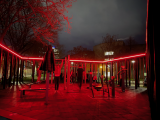
Getting fit and healthy again in 2021? Since the citywide lockdown, members of local sport-clubs have been forced outdoors. One of the most popular (outdoor) fitness areas on the Amsterdam waterfront has been the Marineterrein. In our latest project “Future Fitness Garden” we explore how smart lighting can remind us of safe distancing and capacity in public space during Corona.
Using algorithms we can anonymously detect proximity and density of people working out. For example if they come within 1,5 meters to one another the LED strips turn BLUE. If there are too many people occupying the area the LED will turn RED. This system gently reminds guests to respect each other’s space while sharing the future fitness garden.
Thanks to project partners Marineterrein Amsterdam. Compliments to AI genius Markus Pfundstein, Electrical Mechanical Wizard Werner Pfundstein
Online event over burgerparticipatie: Partici-Input 2.0
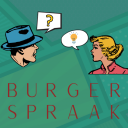
Projectgroep Burgerspraak, bestaande uit zeven trainees van traineeorganisatie DisGover, zoekt in opdracht van Digicampus naar het antwoord op de vraag: "Hoe kan beleid beter in samenspraak met burgers worden ontworpen?"
Hiervoor hebben we het afgelopen halfjaar verschillende interviews, bijeenkomsten en gesprekken georganiseerd. Ter afronding willen we echter nog één keer het gesprek voeren.
Op 20 januari van 15:00 - 17:00 organiseren wij Partici-Input 2.0 waarbij we met ervaringsdeskundigen en experts het gesprek aangaan over bovenstaande vraag. En dan zo organiseren dat beide partijen dat ook willen en het nut ervan inzien!
Tijdens het event zullen we ons in het bijzonder richten op de volgende aspecten:
- Gebrek aan informatie-toegankelijkheid
- Gebrek aan strategische sturing vanuit de top op het prioriteren van het betrekken van burgers onder de beleidsmakers
- Afstand tussen burgers en overheid
Zou jij burgerparticipatie in jouw organisatie ook meer op de kaart willen zetten, maar lukt het je (nog) niet? Dan wil je dit niet missen! Geef aan of je aanwezig bent via het formulier in de website link. Ken je iemand voor wie dit onderwerp ook relevant is? Neem hem/haar dan als gast mee!
We zien je heel graag (digitaal) op de 20e!
Bij vragen zijn wij bereikbaar via: burgerspraak@disgover.nl.
Launch Responsible Sensing Lab & Opening of Exhibit 'Senses of Amsterdam'
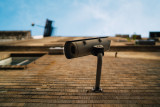
On January 28, we will officially launch the Responsible Sensing Lab during an interactive online event. This event also marks the opening of ‘Senses of Amsterdam’ at NEMO Studio: an exhibit about the sensors in the city.
To celebrate this, we would like to invite you to join the interactive Livestream of this event. In several online workshops we will talk about what responsible sensing means, and discuss what should be done to design a better, more democratic, and more responsible digital future city.
Our keynote speaker Anthony Townsend will discuss the current state of Smart Cities through a Livestream from the US. Deputy Mayor Touria Meliani will close the program with the official (virtual) opening of the exhibit.
Anthony Townsend is a writer and researcher whose work lies at the intersection of urbanization and digital technology. Anthony will give a keynote called From Parasite to Symbiant: Redesigning Our Relationship With Urban Sensors.
Deputy Mayor Touria Meliani is responsible for Arts and Culture, and Digital City, for the City of Amsterdam. Meliani will officially open the Exhibition 'Senses of Amsterdam' on display at the NEMO de Studio.
Program
14:50 Virtual walk-in workshop groups
15:00 WORKSHOPS
A. Designing Citizen Interactions for Urban Sensing Systems
| Kars Alfrink | TU Delft, Researcher, Designer and PhD candidate Industrial Design
| Marcel Schouwenaar | The Incredible Machine, Designer and Creative director
B. Designing Checks and Balances for Urban Surveillance
| Aafke Fraaije | VU Amsterdam, Researcher and PhD Candidate
| Surbhi Agrawal | AMS Institute & RSL, Urbanist and Research Assistant
C. Sensor data
| Anne-Maartje Douqué | City of Amsterdam, CIO Office, Advisor Personal Data
| Beryl Dreijer | City of Amsterdam, CTO Office, Privacy Officer
D. Responsible Crowd Sensing Toolkit
| Tom van Arman | CITIXL, Urban Innovator
| Paul Manwaring | CITIXL, Urban Innovator
15:50 Closing workshops
16:00 LIVESTREAM EVENT FROM NEMO STUDIO
| Moderator | Derisee Hoving
16.10 KEYNOTE
From Parasite to Symbiant: Redesigning Our Relationship With Urban Sensors
| Anthony M. Townsend | Writer and Researcher
16:30 TALKSHOW
Responsible Sensing Lab
| Thijs Turel | AMS Institute, Program Manager Responsible Digitization
| Coen Bergman | City of Amsterdam, CTO, Innovation Developer Public Tech
16:55 PANEL DISCUSSION
Influence of Corona on surveillance in Amsterdam
| Beryl Dreijer | City of Amsterdam, CTO Office, Privacy Officer
| Judith Veenkamp | Waag, Head of Smart Citizens Lab
| Prof dr. Gerd Kortuem | TU Delft & AMS Institute, Professor of Internet of Things
17:15 INTERVIEW
Responsible Sensing Lab & Smart Cities
| Deputy Mayor Meliani | Responsible for Arts and Culture, and Digital City
17:25 EXHIBIT OPENING
'Senses of Amsterdam' with a virtual tour
| Deputy Mayor Meliani | Responsible for Arts and Culture, and Digital City
17:30 Closing
Register here
It is both possible to join the program at 15.00h for the workshops, or at 16.00h for the rest of the program. Please let us know which part(s) of the program you will be joining by clicking here.
More information on the workshops can be found in the registration link.
You will receive a link to the Livestream a day in advance.
Senses of Amsterdam
In 'Sense of Amsterdam' you can discover how sensors make Amsterdam a Smarter city. This interactive installation at NEMO Studio is about the sensors we use in our city. What measurements are taken and how is data collected? The installation informs about the sensors in Amsterdam and how these sensors make the city smarter. You will be challenged to think along with them, and how we can make their use more 'responsible'.
The installation is a collaboration of AMS Institute, City of Amsterdam and NEMO, and is part of the program Responsible Sensing Lab.
Responsible Sensing Lab
This lab explores how to integrate social values in the design of sensing systems in public space. It is a testbed for conducting rigorous, transparent, and replicable research on how smart technologies placed in public space can be designed in a way that makes the digital city ‘responsible’. The Responsible Sensing Lab (RSL) is a collaboration of AMS Institute and the Digital City program of the City of Amsterdam. More information here.
Stay up to date
Get notified about new updates, opportunities or events that match your interests.

